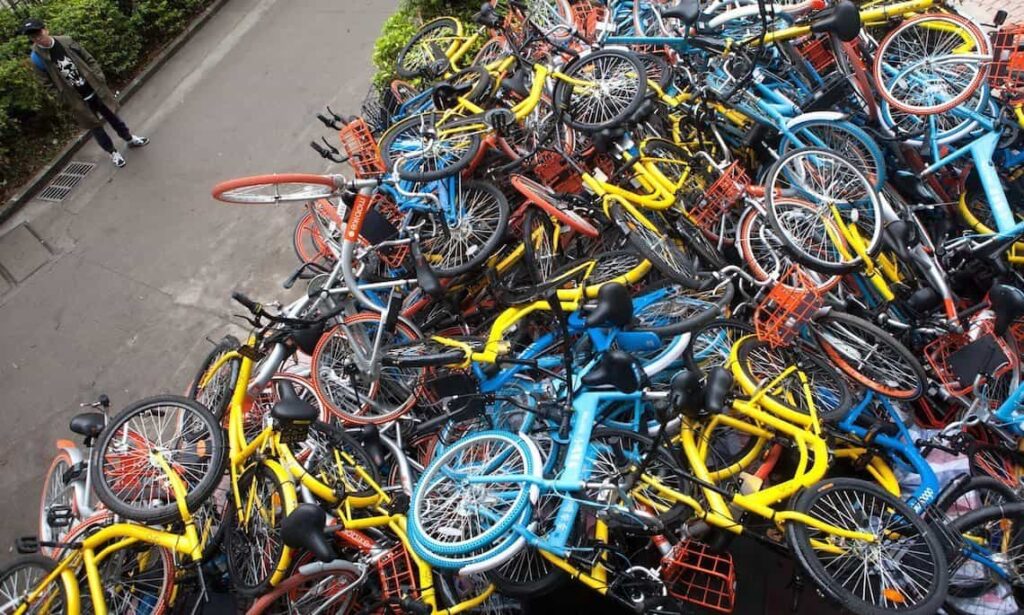
Cycling on a recycled cycle

There are 29 million bicycles in Beijing - and that's a problem
- Dateline
- 29 October 2019
The craze for ‘dockless’ share bikes in China and elsewhere soon led to a massive problem; piles of discarded bikes all over big cities, clogging up sidewalks and alleyways, malls and stations.
The boom in bike manufacture, almost exclusively in China, accelerated, as bicycles essentially became disposable items. With large, automated production runs, producing a standardized bike every 10 seconds, the price per unit plummeted further. Cycle manufacturer Fushida and others together now produce almost 40 million bikes per year.
But people are prepared to pay for convenience, requiring a new dockless bike to be rented only a few dozen times, before it has paid for itself. Like many things, it’s often cheaper to replace with new, than to undertake the logistical nightmare of locating, transporting and refurbishing a discarded or faulty product.
Entrepreneurs will always exploit an opportunity, and ReCycles was born. Faced with city regulations requiring them to clean up their bike pollution, bike sharing companies were eager to outsource the problem to someone else – who would then recycle the discarded bikes back into the system.
What you might call an exhaust opportunity, without the exhaust fumes.
The problem is, the availability of recycled cycles in China now far exceeds demand, by so much that bikes from China are being dumped on international markets at prices that barely cover the freight. Bike pollution has become a global problem, even as the cost of renting a share bike has declined to a few cents.
“It’s a big issue,” says the Greenpeace director for Cycle Control. “We never expected the push for less cars and more bikes to backfire like this. What’s next? Disposable electric cars?”
Links to related stories
- Uber for bikes: how 'dockless' cycles flooded China – and are heading overseas - Guardian, 22 March 2017
- Why China’s bike-sharing boom is causing headaches - South China Morning Post, 24 April 2017
- 500 Bikes Will Soon be Dumped on Cambridge - Gizmodo, 22 February 2017
- MindBullet: MOBILITY AS A SERVICE (Dateline: 17 August 2019, Published: 16 June 2016)
Warning: Hazardous thinking at work
Despite appearances to the contrary, Futureworld cannot and does not predict the future. Our Mindbullets scenarios are fictitious and designed purely to explore possible futures, challenge and stimulate strategic thinking. Use these at your own risk. Any reference to actual people, entities or events is entirely allegorical. Copyright Futureworld International Limited. Reproduction or distribution permitted only with recognition of Copyright and the inclusion of this disclaimer.